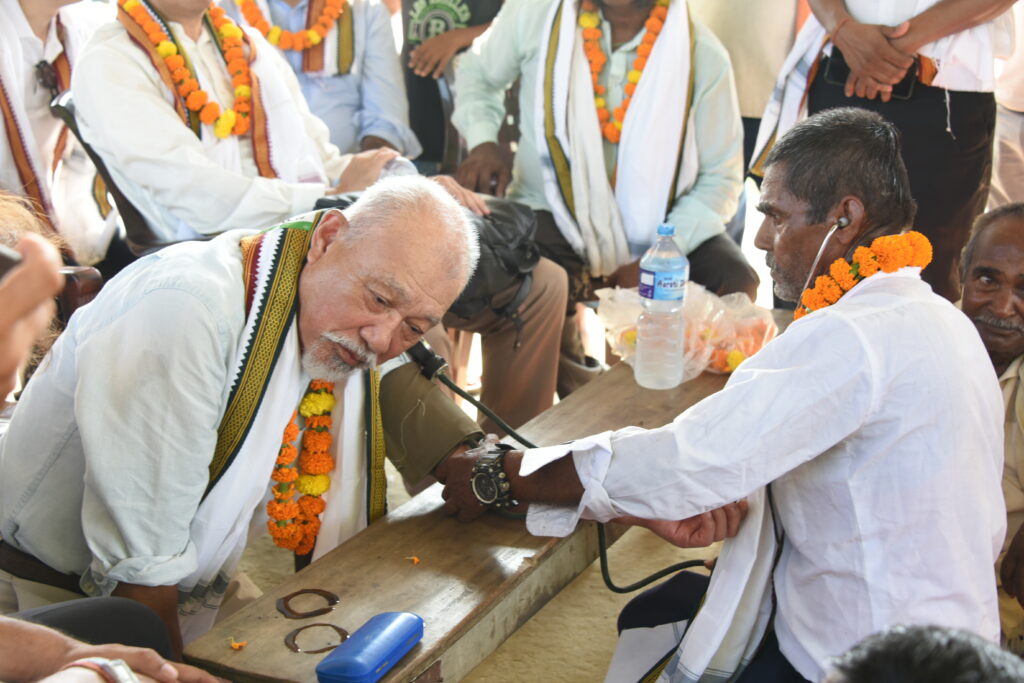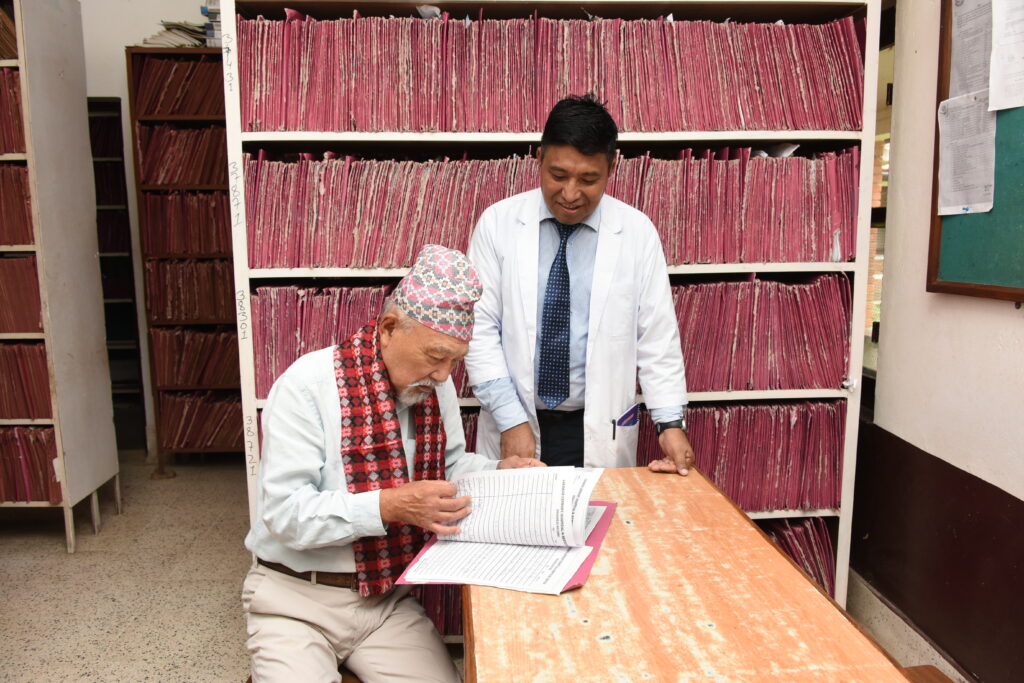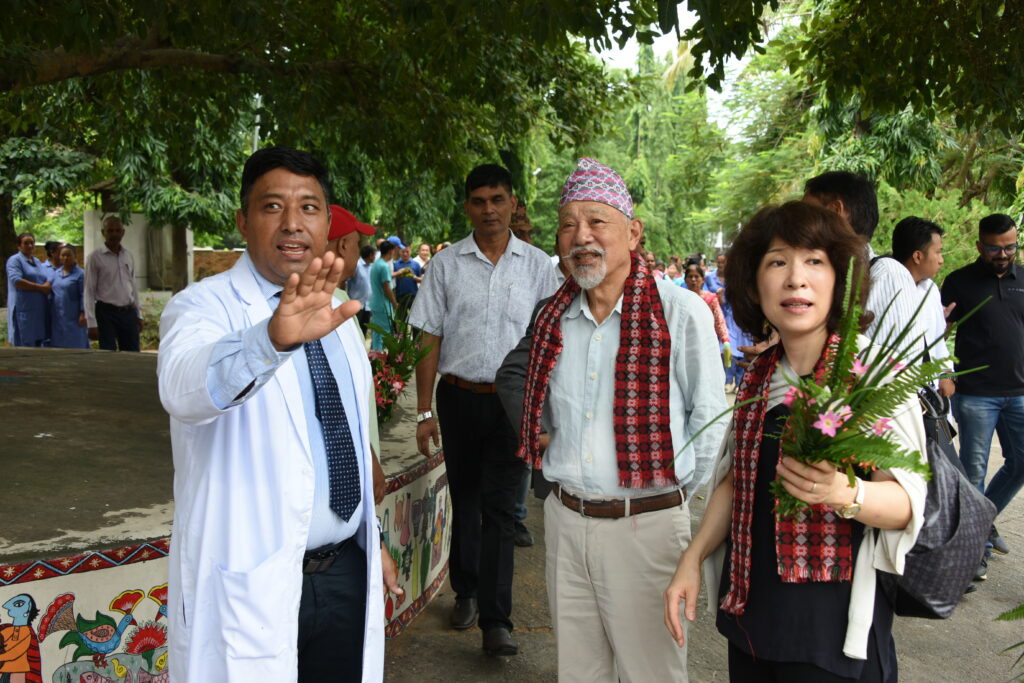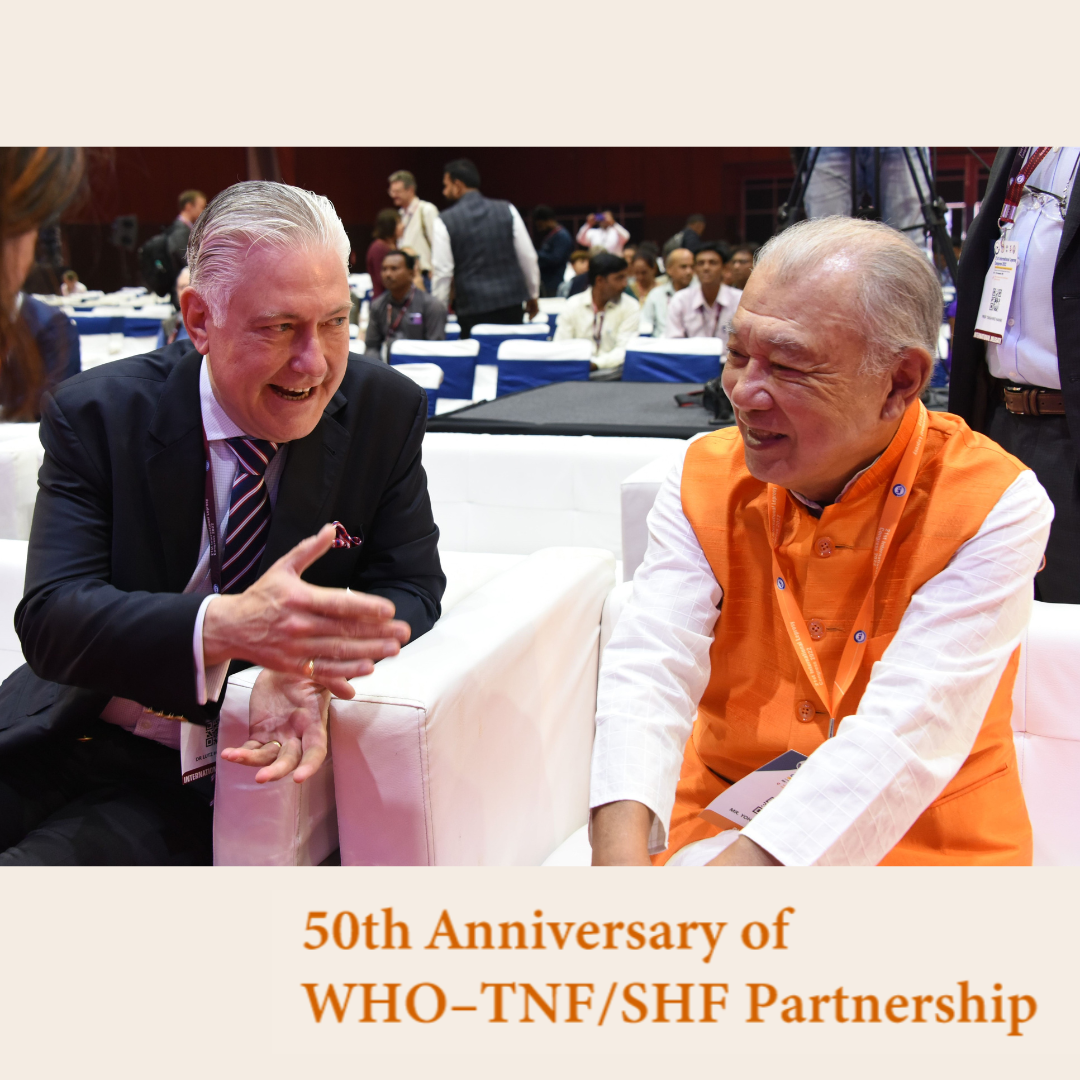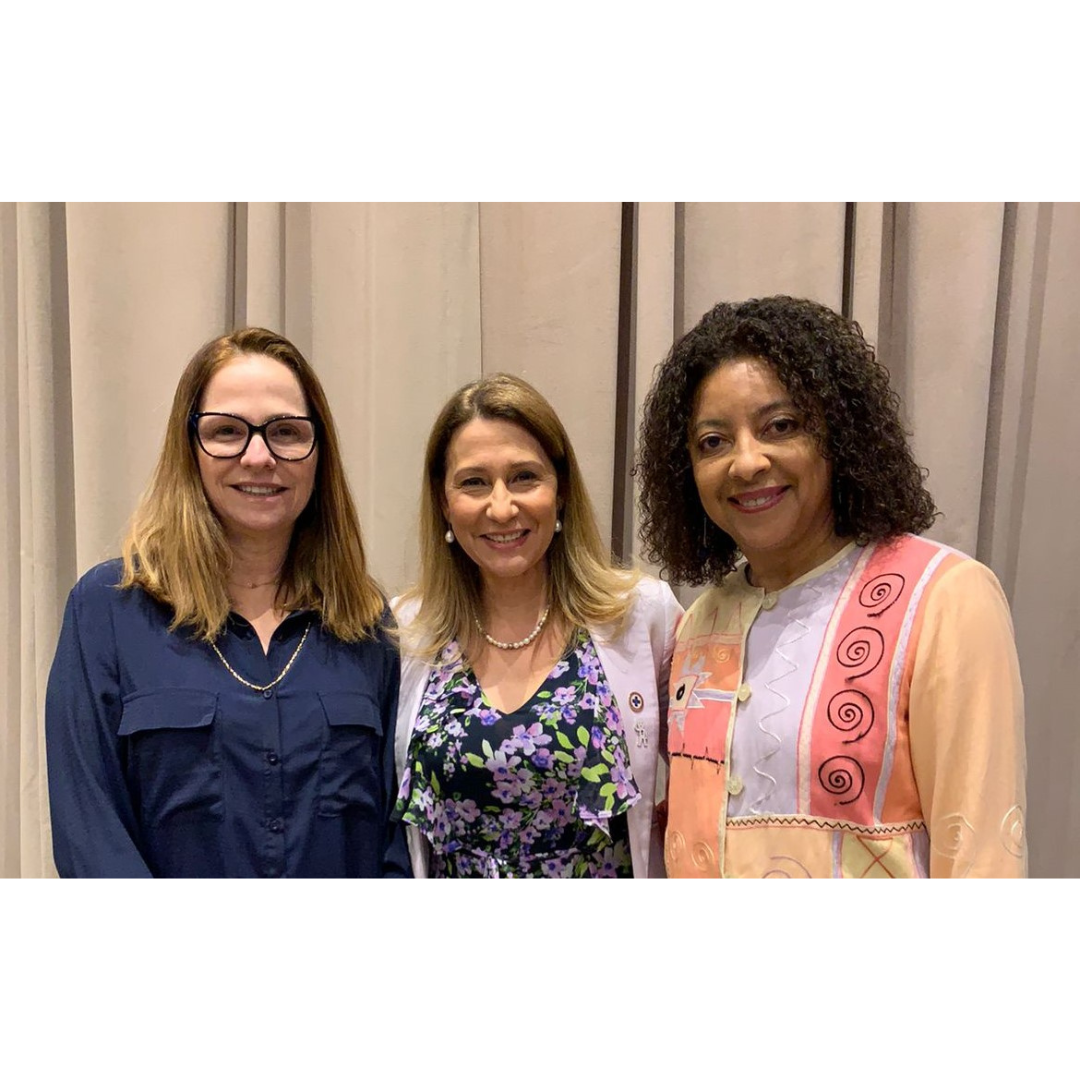From September 16 to 23, WHO Goodwill Ambassador for Leprosy Elimination Yohei Sasakawa visited Nepal for the first time in 10 years. Although Nepal achieved elimination of leprosy as a public health problem in December 2009, and declared elimination in 2010, new cases are increasing and there are many “hidden” (undetected) cases. After meeting with various officials and participating in media activities in the capital city of Kathmandu, the Goodwill Ambassador traveled south to Madhesh Province.
Located along the border with India, Madhesh Province contains 7 of Nepal’s 14 high endemic districts. It is also the location of Lalgadh Leprosy Hospital and Services Centre, one of the world’s busiest leprosy hospitals with 400 or more outpatient visits each day and nearly 100 beds for inpatients. In 2002, the hospital began ramping up its community outreach by establishing Self Help Groups (SHGs). There are now 116 of these groups, which are led by persons affected by leprosy and also welcome other persons with disabilities as well as those who are affected by lymphatic filariasis.
During his visit, the Goodwill Ambassador was especially impressed by how the SHGs facilitate case finding and early treatment. SHG leaders become well known in their communities as local authorities on leprosy. They are skilled at identifying skin patches that should be tested, and they immediately either refer affected individuals to the nearest health center or accompany them to Lalgadh. The Goodwill Ambassador is eager to strengthen the case finding and referral capacities of the SHGs even further, and he would like for this model to spread to other parts of the world.
With the support of the hospital in Lalgadh, the Madhesh Province SHGs are part of a broader community-based rehabilitation model that integrates health, social, and economic interventions. Members receive medical support for leprosy, including self-care training for managing ulcers and nerve damage, as well as psychosocial support. They engage in income-generating activities, contribute to and manage their own fund for microcredit, and help one another to learn to write their full names. Actions such as installing toilets to improve sanitary conditions benefit not only group members, but also the village as a whole as well.
The Goodwill Ambassador’s visit to Madhesh Province confirmed his belief that the best place to find solutions is at the site where people are grappling with the problems directly. He will continue to make visits to endemic areas part of his life’s work.
